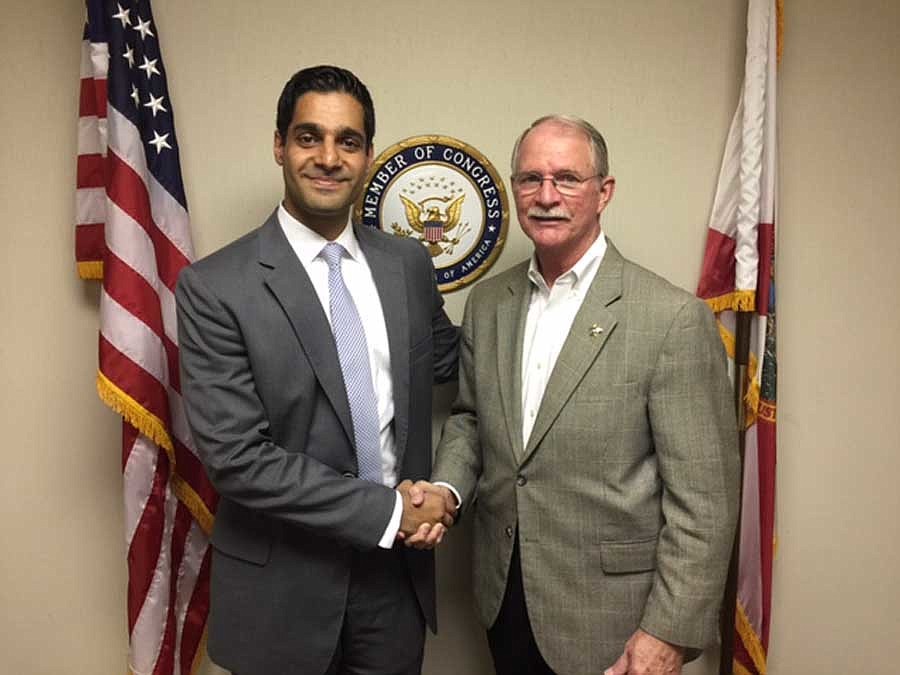
Last Monday was bittersweet. I asked U.S. Rep. from Jacksonville John Rutherford where he stood on House Resolution 257, which condemns hate crimes and calls on law enforcement to expeditiously investigate and resolve all credible reports of hate crimes.
After a brief policy discussion and carefully reviewing the text, our former sheriff offered to co-sponsor the resolution. Later that night — despite the “win” — I felt emotionally overwhelmed.
I spent Monday morning boning up on laws, statistics and incidents of hate crimes against religious minorities in the United States.
In 2015, hate crimes targeting Muslims in the U.S. increased by 67 percent and anti-Semitic incidents increased for the second straight year. In 2017, Islamic centers and mosques have been burned in Texas, Washington and Florida, and Jewish cemeteries have been desecrated in Missouri and Pennsylvania.
But it’s not the data points that get you — it’s the victims and their families.
Before dawn on June 11, Nabra Hassanen, a Muslim-American teenager, was walking with her friends from IHOP to the Adams Mosque in Sterling, Virginia. Nabra and her friends had filled up on fast food before sunrise to get ready for a day-long fast. There was a road-rage incident. A man accosted Nabra’s group with a baseball bat. The kids ran, but Nabra slipped and fell. Her lifeless body was later found in a pond.
Due to the complicated circumstances and an array of possible motives, authorities have been cautious not to designate the incident a hate crime. But the Muslim-American community is deeply shaken.
It is reported that Nabra wasn’t ordinarily religiously observant. She was a popular kid and a dedicated student. Apparently she had borrowed an abaya (religious garb) from her mother to wear to the Ramadan service.
After the incident, Nabra’s mother said: “I think it had to do with the way she was dressed and the fact that she’s Muslim. Why would you kill a kid? What did my daughter do to deserve this?”
Just weeks ago, during Memorial Day weekend, a white supremacist harassed two teenage girls on a train in Portland, Oregon. One of the girls was Muslim and wore hijab (head covering). Three good samaritans, Micah Fletcher, Rick Best and Taliesin Myrddin Namkai-Meche, stood up to the aggressor to defend the girls. All three were stabbed. Two died.
A close friend of mine had been an instructor to Taliesin. They had lived and traveled together for six months in Indonesia. My friend attended Taliesin’s funeral and, on Monday morning, I started my day listening to recordings from Taliesin’s funeral. I then read about London. I then read about Nabra.
Rutherford and I talked about Nabra and Taliesin and about how I shouldn’t have to think twice about taking my teenage niece to see fireworks this 4th of July, because she happens to wear hijab.
I expressed my view that our society and justice system devote appropriate scrutiny to incidents of terrorism, that I don’t know the difference between terrorism and a hate crime, and that it’s apparent that hate crimes against minority communities are on the rise.
It is less apparent whether anyone has noticed, or whether anyone cares.
I can’t express enough gratitude for Rutherford’s open reception and his support for House Resolution 257. But the resolution is purely symbolic. Far more needs to be done to counteract hate crime in the United States.
You can find House Resolution 257 at congress.gov.
If you would like to support Nabra’s family, you can do so here: launchgood.com/project/for_nabra#/
Please keep them in your thoughts and prayers.